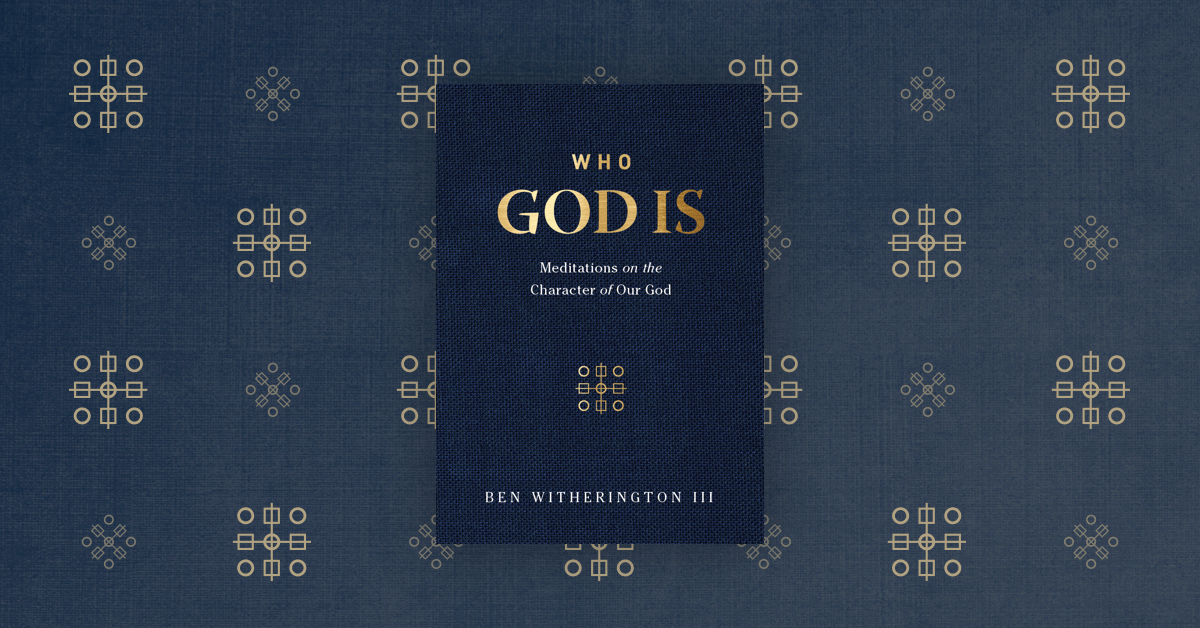
I was having a conversation with my Old Testament colleague Bill Arnold, and I asked him, “Is God ever called ‘life’ in the Old Testament?” His answer was telling: “Nothing comes to mind. But that may be because of frequency of usage, since the noun ‘life’ (ḥayyâ) is relatively rare, whereas the adjective ‘living’ (ḥay) is common, with 249 occurrences, as opposed to only 12 for the noun. I’m suggesting they just won’t have thought or spoken that way.” I agree.
There is plenty of evidence that God is called “the living God” (for example, Deut 5:26; Josh 3:10; 1 Sam 17:26–36; Kgs 19:4–16; Ps 84:2; Isa 37:4–17, and I could go on). These assertions about “the one and only living (or true) God” comport with the suggestions that this God is eternal—has always been, exists now, and shall always be. See, for example, Jeremiah 10:10, where the biblical God is called both the living God and the eternal or everlasting King. Daniel 6:26 says the living God is “enduring forever” (cf. Acts 14:15). It is thus not surprising that in the Gospels Jesus is called “the Son of the living God” (Matt 16:16; cf. John 6:69).
As we shall see shortly, it is Christ who is said to be the life, which in this case does not merely mean he is alive or even just the source of ordinary physical existence. No, Christ is “the life” (John 11:25) because he is the one and only source of everlasting life for fallen human beings.
Jesus as the life
An important distinction must be made at this point: Only God (Father, Son, and Holy Spirit) is eternal. All other beings have a beginning in time. This being the case, when we are talking about salvation and the life Christ can give us, it is everlasting life we are talking about—a life that begins in this mundane world and continues on into eternity. God in Christ is not giving away what only an eternal being can have: eternal life. Christ is the bearer and giver of everlasting life. Likely this is why we have the phrase in John 11:25—“Jesus said to her, ‘I am the resurrection and the life. The one who believes in me will live, even though they die.’ ” Jesus is speaking to Martha, and he connects the life he is talking about to resurrection—a postmortem experience. His point is that when it comes to salvation or the gift of everlasting life, physical death cannot snuff it out. Indeed, eventually even physical death will be reversed for the believer in the resurrection.
Notice how the various attributes of God’s and Christ’s character are mutually reinforcing. Jesus doesn’t merely give life; he is life. He’s the very source of life and, in particular, in this context, everlasting life. The life that he is referring to must be received in this lifetime, and it will continue on into and throughout life in heaven and then life in the resurrection when we regain a physical existence. Here, life is connected with salvation, including the final act of salvation when we are conformed to the image of the risen Lord by means of resurrection.
Life through death
I’ve found that the more one becomes familiar with key themes of Christianity, the more faded some of the paradoxes of Christianity may become. For example, consider how paradoxical it is that the death of Jesus is part of bringing forth the way of everlasting life. But as we well know, death did not win. God had a greater plan. Jesus would conquer death once and for all. For this reason, the Christian life is worth living. Paul says, “Where, O death, is your victory? Where, O death, is your sting? … But thanks be to God! He gives us the victory through our Lord Jesus Christ” (1 Cor 15:55–57). For believers, death does not have the final say, as God is both the living God and a God of the living. This explains why we constantly groan for a better life, a different home. We do not live for the destination of a grave on earth, but for resurrection and a new life. As C. S. Lewis writes in Mere Christianity, “Aim at Heaven and you will get earth ‘thrown in’: aim at earth and you will get neither.” Or as the songwriter Helen Howarth Lemmel wrote:
O soul, are you weary and troubled?
No light in the darkness you see?
There’s light for a look at the Savior
And life more abundant and free!
Turn your eyes upon Jesus,
Look full in His wonderful face,
And the things of earth will grow strangely dim
In the light of His glory and grace.
Through death into life everlasting
He passed, and we follow Him there;
O’er us sin no more hath dominion—
For more than conqu’rors we are!
Christians live with much to hope for in an everlasting life. This is only true because God is love, light, and life.

This post is adapted from Who God Is: Meditations on the Character of Our God by Ben Witherington III (Lexham Press, 2020).






